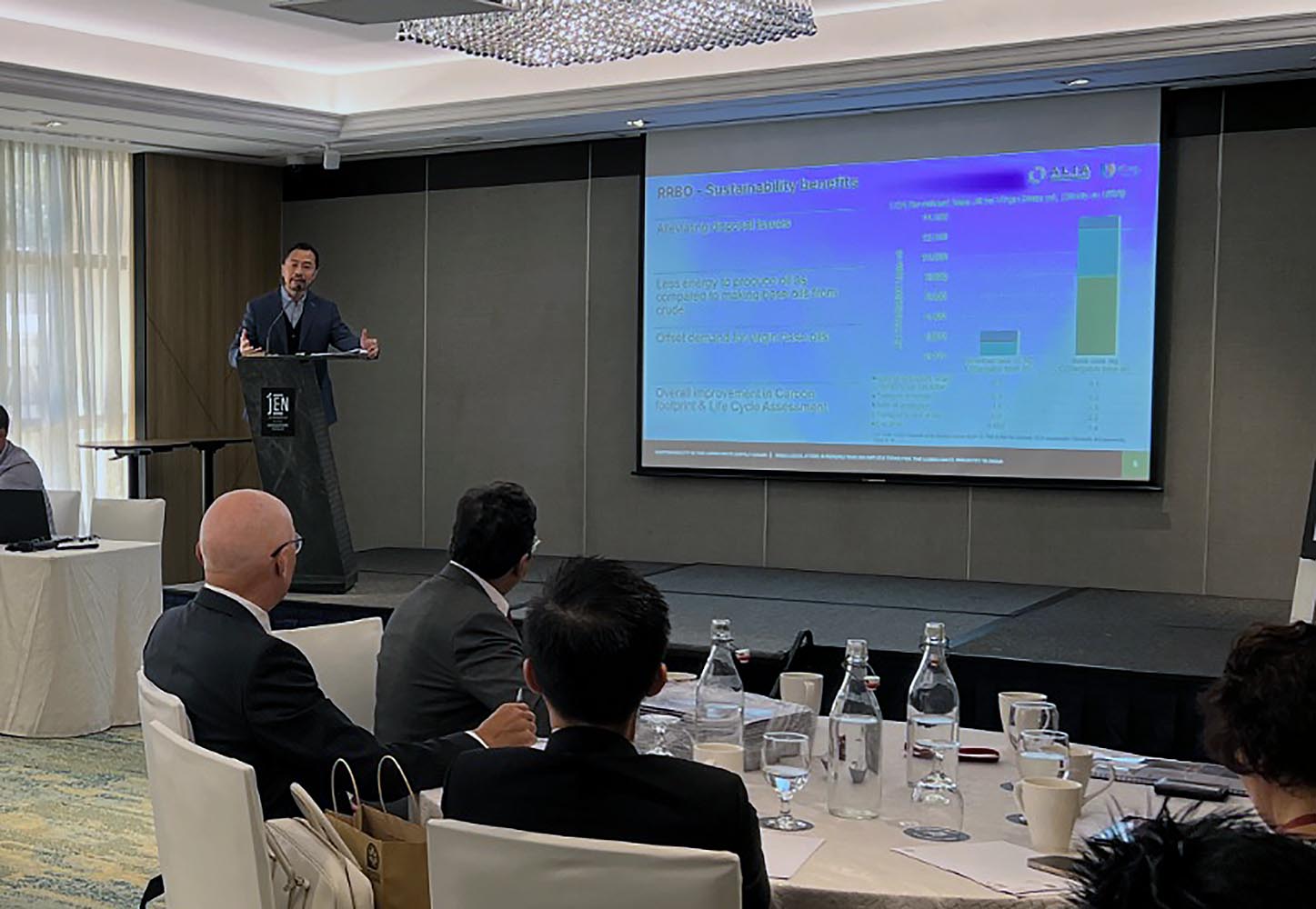
Lubrizol highlights consistency challenges in re-refined base oil
Lubrizol, a prominent additive player in the lubricants industry, has shed light on ongoing challenges related to the consistency of re-refined base oils (RRBO). The revelation came during the ALIA Seminar on Sustainability in the Lubricants Supply Chain, which took place on November 6-7, 2023, at Jen Singapore Tanglin by Shangri-La, Singapore.
India’s government has taken a proactive stance on policies concerning RRBO. During the seminar, Paul Nai, director, Product Management, Lubrizol South East Asia Pte Ltd, outlined several government commitments including the establishment of a committee for used oil management, and the development of action plans for automotive OEMs and lubricant manufacturers to drive the adoption of RRBO.
Proposed RRBO Extended Producer Responsibility (EPR) guidelines mandate the use of RRBO in specified applications, and a draft Mineral and RRBO Specification was published by the Bureau of Indian Standards (BIS) in May 2023 — which prescribes the requirements, methods of sampling, and tests for mineral and re-refined base oils. The specification includes criteria such as sulfur content (max 0.2% by mass for low sulfur; maximum 1.2% by mass for high sulfur), saturates (minimum 80% by mass) and viscosity index (95 mininum).
However, during his presentation on RRBO Legislation: A Perspective on Implications for the Lubricants Industry in India, Nai highlighted concerns about uniformity. The Lubrizol representative shared the results of a research study on SN150 Grade RRBO, which involved samples from seven different suppliers, both imported and regional.
The results demonstrated wide variances in sulfur content, saturates and viscosity index across the samples. Notably, four samples met the Bureau of Indian Standards (BIS) RRBO specifications for low sulfur (suitable for automotive applications), while three failed to meet these criteria.
Nai emphasised the importance of testing base oils before formulation, as the variations in RRBO properties in the market make it challenging to develop a universal finished lubricant formulation. Lubrizol has taken the initiative to collect more RRBO samples for further evaluation.
Inconsistent saturate levels can affect oxidation phenomena and reduce overall drain intervals, while varying sulfur content, especially higher sulfur levels, can impact after-treatment systems and fuel efficiency. This inconsistency also poses challenges in formulating fuel economy (FE) driven viscosity grades, such as SAE 0W-16, 0W-20, 5W-30, and 10W-30.
Even when sourcing from the same supplier, Lubrizol encountered issues. Multiple samples of the same SN150 RRBO displayed differing characteristics and base oil group variances. Of six samples, three fell under a Group I classification, two were Group III and one failed to meet any group criteria, according to API 1509 guidelines. A significant change in base oil properties can render API licensable products non-licensable. Another key challenge is that base oil interchange guidelines are different for different groups of base oil.
Nai underscored the importance of robust additive technology and meeting qualifying specification limits to ensure that RRBO can meet the desired vehicle performance standards. The disclosures made during the seminar support the pressing need for standardised RRBO properties and improved quality control to ensure the sustainable use of re-refined base oil in the Indian lubricants market.













